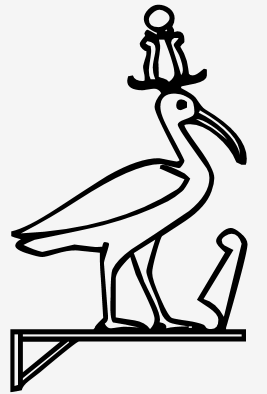Ennead (ἐννεάς) is an ancient Greek word for “nine” (or a group of nine). The ancient Pythagoreans considered the numbers 1-10 each to embody certain qualitative aspects (in addition to their quantitative function). Speculation on the qualities of the first ten numbers is sometimes called “arithmology” by modern scholars, in order to distinguish it from from the modern sense of “arithmetic.”
On the Ennead (περὶ ἐννεάδος):
The Theology of Arithmetic 76.6-77.5: “The ennead is the greatest of the numbers within the decad (δεκάς) and is an unsurpassable limit (πέρας ἀνυπέρβλητον)…. That number admits nothing beyond the ennead, but rather everything circles around within it, is clear from the so-called recurrences: there is a natural progression up to it, but after it there is repetition. For ten becomes a monad by the subtraction of one elementary quantity (i.e., one ennead), and again 11 and 20 become a dyad by the subtraction of either one or two enneads, and 12 and 30 become a triad, and again 100 becomes a monad, when enneads are subtracted, and so on ad infinitum, so that it is by no means possible for there to subsist any number beyond the nine elementary numbers. Hence [the Pythagoreans] call it ‘Ocean’ (Ὠκεανός) and ‘horizon’ (ὁρίζων), because it encompasses both of these locations and has them within itself.”
The Theology of Arithmetic 77.10-13: “Because it does not allow the harmony (σύμπνοια) of numbers to be dissipated (σκορπίζεσθαι) beyond itself, but brings numbers together and makes them play in concert, it is called ‘concord’ (ὁμόνοια), ‘limitation’ (πέρασις: 596), and also ‘sun’ (ἅλιος), in the sense that it gathers things together (ἁλίζειν).”
Additional enneadic terms from The Theology of Arithmetic:
- Prometheus (Προμηθεύς, Προμηθέα)
- Lack of Strife (ἀνεικία)
- Assimilation (ὁμοίωσις)
- Hephaestus (Ἥφαιστος)
- Hera (Ἥρα)
- Banisher (ἑκάεργον), “because it prevents (εἴργειν) the voluntary progress (ἑκὰς πρόβασις) of number” (Theol. Arith. 78.4-5).
Isopsephy of 9 (32):
- ἄγε 1 (age) – come on!; today
- ἄγε 2 (age) – lead!, carry!, fetch!, bring!; take!, carry off!; keep!, observe!
- ἄζα (aza) – heat, dryness; unsatisfied desire; dirt; dry sediment
- γέα (gea) – earth, land, country, ground (alternate form of γῆ)
- δέ (de) – but; and
- ἦα (ēa) – I/he/she/it was (Epic poetry)
